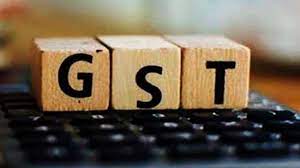‘Input Tax Credit’ or ‘ITC’ means the Goods and Services Tax (GST) paid by a taxable person on any purchase of goods and/or services that are used or will be used for business.
Input ITC can be reduced from the GST payable on the sales by the taxable person only after fulfilling some conditions. These conditions given under the GST law are more or less in line with the pre-GST regime, except for a few additional ones such as GSTR-2B. These rules are direct and maybe stringent in nature.
The registered taxable person, in order to avail of the input tax credit, needs to satisfy several conditions as laid down under provisions of section 16(2) of the Central Goods and Services Tax Act, 2017.
Recently, the Finance Act, 2022 has inserted one additional condition which the registered taxable person needs to comply with in order to avail of the input tax credit. Notably, the inserted new condition is right now puzzling a lot to the trade and industry.
It is important to note here that the Finance Act, 2022 has got the presidential assent on 30th March 2022. However, the effective date of the additional input tax credit condition is not yet notified.

Current position of input tax credit availment condition
The recipient prior to availing of the input tax credit needs to satisfy the following five conditions. Notably, earlier there were only four conditions. However, the fifth condition was later on introduced and made effective from 1st January 2022.
Condition 1 – As covered under section 16(2)(a) –
The recipient of goods or services or both should possess a relevant tax invoice or debit note or any other tax paying document as issued by the supplier.
Condition 2 – As covered under section 16(2)(b) –
The recipient should have received the relevant goods or services or both. However, in case the goods or services are delivered/ supplied to any other person on the direction of the recipient. Then, it will be deemed to have been received by the recipient.
Condition 3 – As covered under section 16(2)(c) –
The supplier should have actually paid the relevant tax, charged on the supply of goods or services, to the Government. Such GST tax payment can be made by the supplier either via an electronic cash ledger or electronic credit ledger.
Condition 4 – As covered under section 16(2)(d) –
The registered person should have furnished the return in Form GSTR-3B as per section 39 of the Central Goods and Services Tax Act, 2017.
Condition 5 – As covered under section 16(2)(aa) – effective from 1st January 2022
The supplier should have furnished the details of the relevant invoice/ debit note in the statement of outward supplies i.e., Form GSTR-1. Further, such details should have been communicated to the recipient in auto-generated statement in Form GSTR-2B.
Position of input tax credit availment condition post
Finance Act, 2022 –
Vide clause 100 of the Finance Act, 2022, the sixth condition for availment of the input tax credit was inserted. The sixth condition, as covered under section 16(2)(ba), states that details of the input tax credit as communicated via Form GSTR-2B should not be restricted under section 38.
Correspondingly, vide clause 104 of the Finance Act, 2022, provisions of section 38 of the Central Goods and Services Tax Act, 2017 are also entirely substituted via Finance Act, 2022. Accordingly, new provisions mean as under –
- As per section 38(1), the detail of outward supplies furnished by the supplier in Form GSTR-1 will be made available to the recipient in Form GSTR-2B subject to prescribed conditions and restrictions; and
- As per section 38(2), Form GSTR-2B will consist of the following two parts –
| Parts | Details thereof |
| Part 1 covering available input tax credit | Details of inward supplies in respect of which input tax credit is available to the recipient. |
| Part 2 covering restricted input tax credit | Details of supplies in respect of which input tax credit is restricted due to any of the following reasons – · The supply is undertaken by the supplier within the prescribed period of obtaining GST registration; · The supplier has defaulted in tax payment for a continuous prescribed period; · The output tax payable as per Form GSTR-1 filed by the supplier is more than the output tax paid as per Form GSTR-3B as per the prescribed limit; · The registered person has availed input tax credit in Form GSTR-3B in excess of input tax credit reflected in Form GSTR-2B as per the prescribed limit; · The registered person has defaulted in discharging the tax liability; · The supplier belongs to the prescribed class of person. |
Here, it is important to note that as stated under section 38(2), the Government has yet not prescribed the limit, period and class of person.
Further, both the above mentioned clause i.e. clause 100 and clause 104 will come into force as and when the Central Government specifies the date via issuing a notification.
FAQs
How does the GSTR-2B statement affect ITC claims?
The GSTR-2B statement is an auto-populated document that contains details of ITC available to the taxpayer. ITC can only be claimed if the corresponding invoices or debit notes are reflected in the GSTR-2B, ensuring that the supplier has reported and paid the tax.
What are the new ITC availment conditions introduced by the Finance Act, 2022?
The Finance Act, 2022 introduced stricter conditions for claiming ITC. Key conditions include:
- ITC can only be claimed if the supplier has uploaded the invoice on the GST portal.
- The invoice or debit note must appear in the recipient’s GSTR-2B (an auto-drafted ITC statement).
- The supplier must have paid the tax to the government.
